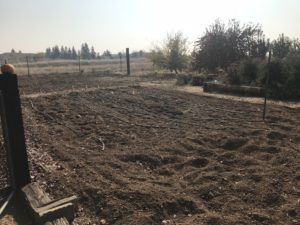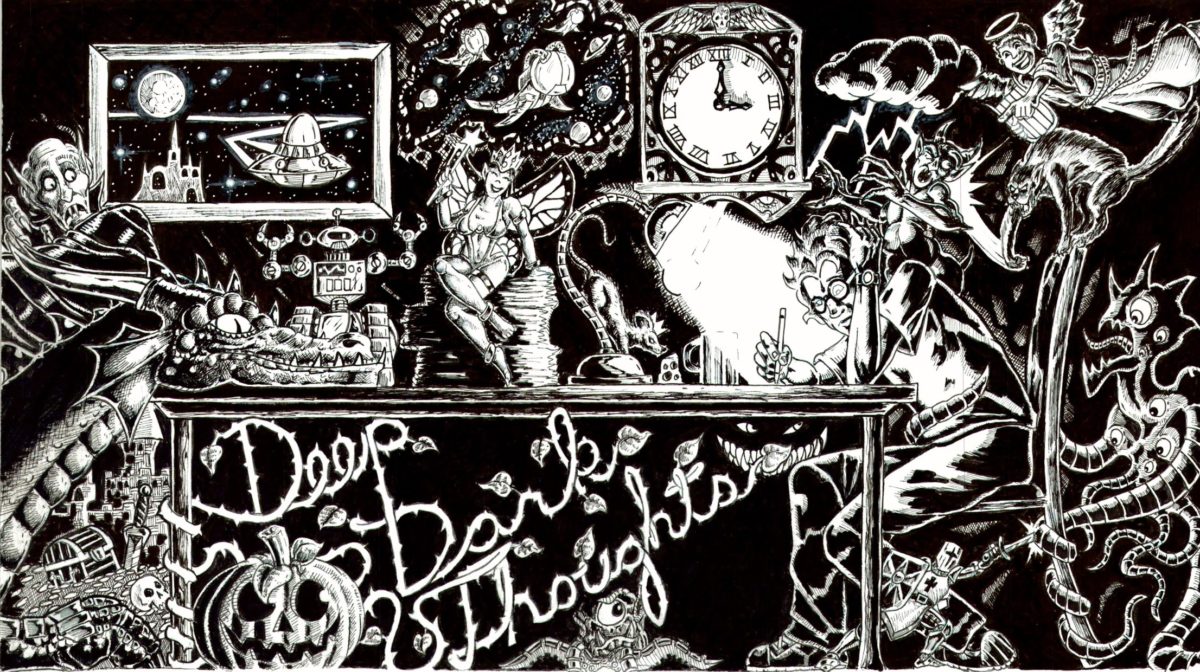
The summer garden has definitely seen better days. The tomatoes are rotting on the vines, the unpicked zucchinis look like over-inflated baseball bats, and the lettuce plants have flowered and started scattering fluffy white seeds all over the yard.
It was a good run this year, mostly. The cantaloupe were tiny and tasted like feet, and the corn would have made cattle walk the other way, but most of the other items I planted turned out well. Watermelon, squash, cucumbers, tomatoes, lettuce and peppers grew with abandon and we were able to harvest all that we wanted to eat and more. Much more. The neighbors stopped answering their doors when we knocked, hoping that we would stop bringing over excess vegetation.
That didn’t stop me, of course. I can always find ways to be generous, especially with the family across the street that keeps forgetting to lock their car doors at night. Imagine their utter delight in the morning when they open the car and find the produce fairy left another pile of zucchini and cucumbers in the back seat. I can almost hear the squeals of delight.
But, that’s all over for another year. The weather has turned, and it is getting too cold at night for most vegetable gardens to continue to grow. And, that’s fine with me. After months of weeding, watering, and harvesting, I’m ready for a break.
At least, I thought I was. But that was before my wife suggested that this year, I should plant a winter garden.
I didn’t even know that was a thing. I thought winter was the time that you watch the garden turn into a pile of weeds and plan out what you want to plant when the weather gets warmer. Apparently, there are things that like to grow in the cold and the rain. Who knew?
I went online and did some research, looking for what plants would grow during the winter months. There is quite a list. Onions, garlic, beets, broccoli, Brussels sprouts, spinach, asparagus, cauliflower, cabbage, and kale all thrive in colder weather. There is just one problem. I hate every one of those things.
With the possible exception of garlic (which is a seasoning, not a vegetable by the way) I don’t want any of those items on my plate. I might as well be growing oleander and hemlock since I’m much more likely to put one of those in my mouth than any of the “winter garden” items.
I suppose I could grow them and just give them to the neighbors as gifts, rather than eat them myself. But, my relationship with the people around me is already tenuous enough without adding kale into the equation.
Despite my protestations against the idea, I recently found myself crawling on my hands and knees through the remains of my summer garden, locating and removing the dripline hoses and metal brackets that held everything in place. Usually, I do this chore in the spring, when all the old garden plants are completely dead and any remaining fruits and vegetables have decomposed back into the soil. Crawling around in the garden in November, I discovered two very disturbing things:
First, half rotted vegetables smell absolutely horrible as they squish under your hands and knees. They feel disgusting as they burst underneath you, and the slimy fluids that leak out of them soak through your pants very quickly. It is not an experience I recommend.
Second, the vermin that feed on half rotted vegetables have not yet vacated the garden in November. I displaced several mice, voles, and other small rodents as I crawled through the dying greenery of my garden. Ordinarily, I would not say I have any great fear of mice, but when my hand punched through the gelatinous remains of a pumpkin, and a hairy little beast ran up my arm while trying to escape the assault on his edible home, I had a less than pleasant moment. I think I handled it rather well, however my next door neighbor called a few hours later to ask if any eleven-year old girls had been murdered on my property that day. Apparently, the screaming had caused his cat to run away.
After removing the driplines, I fired up the rototiller to break up the dirt and turn under all the remaining plant life. As I plowed through the cucumbers, lettuce and tomatoes, it smelled like someone had made an enormous green salad … and then left it out in the sun for a month. I dry heaved for two hours as I tore up the ground and prepared the soil for a new round of planting, but I powered through the worst of it until I had a smooth bed of dirt, ready to be seeded.
I have to admit, the tilled soil looked pretty good, and the hours that I had labored gave me plenty of time to consider what I wanted to do with it.
I went into the house, threw my clothes in the garbage and spent a couple hours under a blistering hot shower. When I was done, I sat on the couch and watched a horror movie on TV. My wife got home a little while later.
She said the garden looked wonderful, then asked when I was going to start planting.
I told her, “In March, like a normal person.”
